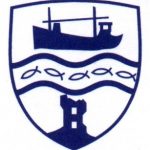Geography:
The study of geography introduces pupils to our changing world, its human interactions and physical processes. Pupils develop the knowledge and skills to enable them to contribute to their local communities and wider society. It builds on the principles and practices for social studies and for science. Pupils develop a framework of geographical knowledge and increase their understanding of the environment, sustainability and the impact of global issues and fosters positive life-long attitudes of environmental stewardship, sustainability and global citizenship.
The course emphasises the development and application of skills with the emphasis on the interpretation of various sources, including maps, to develop thinking skills. Pupils gain experience in contributing to group work and also working on their own through taking part in investigative and critical thinking activities. They also progressively develop their skills in literacy and numeracy.
Through the study of geography, and the acquisition of techniques of geographical analysis, pupils develop an understanding of aspects of the contemporary world. As their confidence grows they begin to understand more about their sense of identity and learn about different countries and cultures within the contexts they are studying. Geography encourages them to reflect on the impact of the environment on health and wellbeing as well as encouraging pupils to develop an open mind and respect for the values, beliefs and cultures of others.
The course is based on 3 broad themes using local, national, international and global exemplars.
Physical environments
Pupils develop geographical skills and techniques in the context of physical environments, together with a detailed knowledge and understanding of the processes and interactions at work within physical environments. Key topics include: location of landscape type, formation of key landscape features, land use management and sustainability, and weather. They study a selection of landscape types from contexts within Scotland and/or the UK. Landscape types are chosen from: glaciated upland, upland limestone, coastal landscapes, and rivers and their valleys.
Human environments
Pupils develop geographical skills and techniques in the context of human environments, together with a detailed knowledge and understanding of the interactions at work within human environments. They will compare developed and developing countries from a global context. Key topics include: contrasts in development, world population distribution and change, and issues in changing urban and rural landscapes.
Global issues
Pupils develop skills in using numerical information in the context of global issues, together with a detailed knowledge and understanding of two significant global geographical issues. Key topics include: climate change, natural regions, environmental hazards, trade and globalisation, tourism, and health.
Personalisation and choice is possible through each unit of study.
Assessment and Certification
The work of National 5 pupils is externally assessed by an exam on performance in two sections:
- A question paper which covers all three units and which gives the opportunity to demonstrate mapping and graphical communication skills.
- An assignment of their choice which gives an opportunity to demonstrate all the skills, knowledge and understanding that they have acquired within the context of any of the three units.
The work of National 4 pupils is assessed internally for the three units by end of unit assessments both formative and summative in style. They also have to produce an assignment which gives an opportunity to demonstrate all the skills, knowledge and understanding that they have acquired within the context of any of the three units.
The work of National 3 pupils is assessed internally for the three units by end of unit assessments both formative and summative in style but they do not need to complete an assignment.
Evidence is collated and assessed in many ways for all levels of the course and may be integrated across units. Within all of these candidates will need to demonstrate their use of specialist maps and ICT as appropriate.
